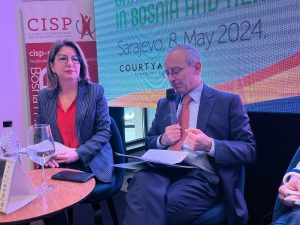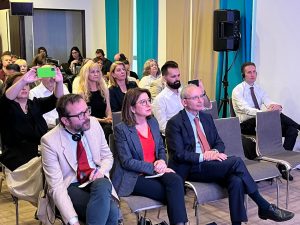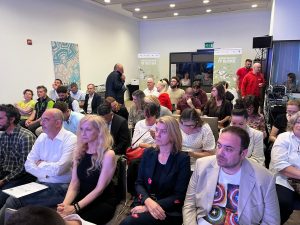The workshop “Green Talks: charting sustainable tourism in Bosnia and Herzegovina” took place in Sarajevo, marking the first of three concluding events within the NaturBosniaHerzegovina initiative, financed by AICS and implemented by the Italian NGO CISP (International Committee for the Development of Peoples). The event brought together key stakeholders from the sector, including authorities of Bosnia and Herzegovina, international partners (with the presence of the European Union Delegation), and representatives from civil society. On this occasion, CISP and its project partners and collaborators, including the Abruzzo, Lazio and Molise National Park and Agenda 21, presented key findings, shared best practices, and outlined innovative pathways for socioeconomic development that promotes environmental conservation through tourism.
In his opening address, the Italian Ambassador Marco Di Ruzza emphasized how the “NaturBosniaHerzegovina” embodies a joint commitment to elevate environmental standards in Bosnia and Herzegovina in line with European standards and to promote sustainable tourism in the country, enhancing its natural beauty and biodiversity. “Our Embassy,” stated Di Ruzza, “is proud to be a catalyst for this initiative, which involves a broad network of “Sistema Italia” actors, including AICS, civil society organizations, and Italian excellences such as our prestigious national parks, universities, and research institutions. The success of this initiative, along other parallel projects developed in partnership with UNDP, such as Via Dinarica, Bridge, and Green Network, demonstrates that Italy is at the forefront of green diplomacy in Bosnia and Herzegovina, with decisive, consistent, and widespread action.”
Letizia Fischioni, Deputy Head of AICS Tirana, the regional office responsible for the Western Balkans, highlighted how “NaturBosniaHerzegovina” represents not only an important environmental protection initiative and an example in terms of ownership but also an essential component of the Italian regional cooperation approach in the Western Balkans, along with similar initiatives in other countries in the area. “This project contributes concretely to regional integration within the Western Balkans and towards the European Union, in line with the Berlin Process and the Sustainable Development Goals.”
Deborah Rezzoagli, Area Director for the East at CISP, recalled that since 2016, CISP has strengthened its commitment in Bosnia and Herzegovina, with a particular focus on inclusion and the involvement of key local stakeholders, acting as a bridge between Italian excellences and local society. “Thanks to AICS and the Italian Embassy in BiH,” stated Rezzoagli, “concrete and lasting results have been achieved within the NaturBosniaHerzegovina project, even beyond what was planned.”





